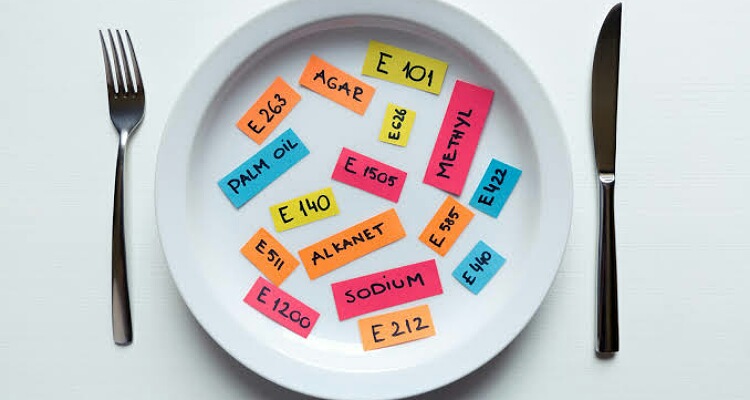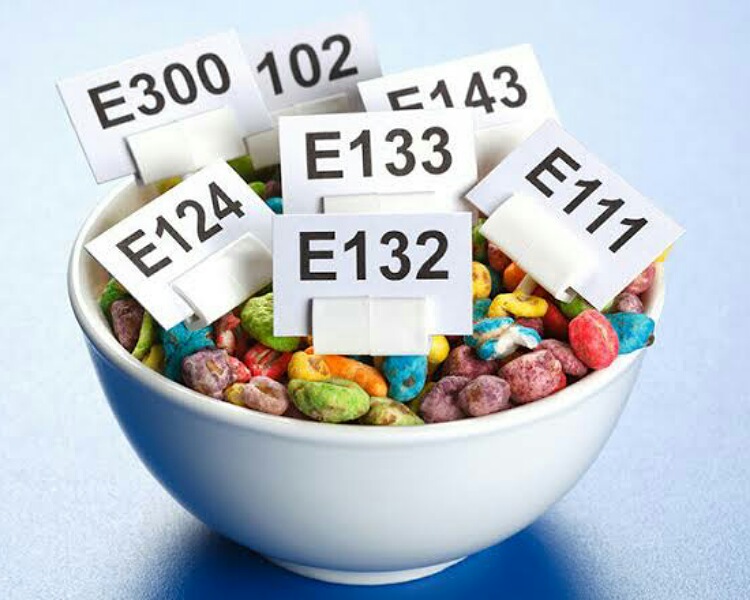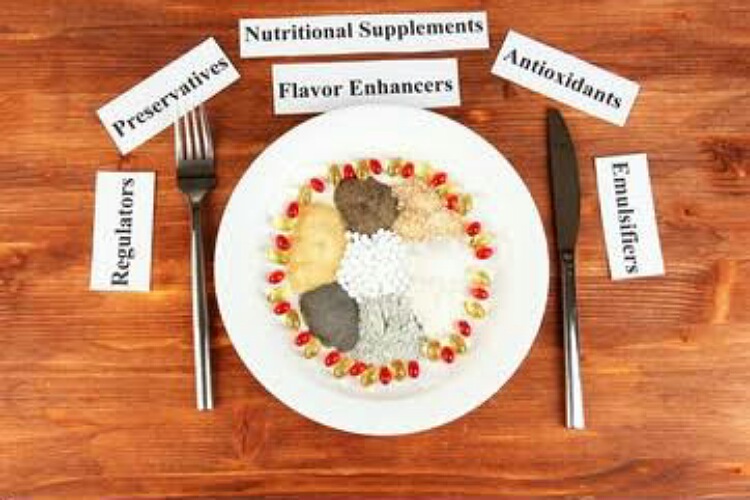Food additives are part and parcel of ultra processed foods. They are used for various reasons in packaged food industry. Most are generally recognized as safe for consumption. But certain of these additives are harmful and one should avoid them.
Food additives and the food industry
Food making was a home affair in the older days. As industrialization came in and started booming, food industry also cropped up. And with the food industry came packaged foods. These foods are ready to eat and have the added advantage of convenience. Moreover, these are cheaper due to bulk production.
But these foods that are ultra processed have a number of food additives in them. The manufacturers add them to these prepared and packaged foods for several reasons. Some additives help in prevention of food contamination. Others act as preservatives and keep the food fresh for a longer time.

Some additives give color to the foods while others enrich their flavor. There are a few that enhance their nutritive value such as fortification of breakfast cereals.
Though most of these additives might seem harmless, there are a few that can cause harm and must be avoided.
Trans fats
This word came into prominence in the last one and half decades after oil companies started using hydrogen to increase shelf life of oils. They did this also to improve the oil texture. But hydrogenated oils are trans fats and can increase risk of heart diseases, stroke, and type 2 diabetes.
Sodium nitrite
Sausages, canned tuna and deli meat contain it. Studies have linked this chemical with pancreatic cancer and other health issues. Avoid it.
Monosodium glutamate or MSG

It comes from glutamate and in appearance resembles sugar or salt. Common in Chinese and fast foods, it enhances the taste of savory dishes. Since the 1960s, it has a bad reputation. Its use was associated with Chinese restaurant syndrome. In this, some people who ate at Chinese restaurants fell sick. But later, studies did not find a link of the sickness with MSG.
But there are some who continue to claim that in some people MSG can cause flushing, sweating, headaches, tightness in face area, facial pressure, tingling or numbness or burning in the face and neck area, increased heart rate and palpitations, chest pain, nausea, and weakness. Though debatable, it is best to avoid foods containing MSG such as chinese foods, fast foods, and processed foods.
Artificial food colorings
All of these colorings for food are bad but notorious are yellow #5, blue#1 and blue#2, red dye#3, natural green color, and yellow#6.
Aspartame

Aspartame is an artificial sweetener. It is a common ingredient of diet soda, sugar free soda, chewable gum, chewable vitamins, and in Jell-O and Kool-Aid. Manufacturers use it because it is 200 times sweeter than sugar. Hence amount needed is less. Also, they can claim that there is sweetness with no calories.
But studies show that it can increase blood sugar and also cause anxiety.
BHA & BHT
Butylated hydroxyanisole (BHA) and butylated hydroxytoluene (BHT) are in potato chips, chewing gum, cereals and vegetable oils. They act as preservatives and prevent the color change, flavor change and rancidity.
Read here: Protein powders, their shelf life, and safety!
But these two chemicals can harm the nervous system and lead to behavior change. Moreover, it has the potential to cause cancer. Both are oxidants that release cancer causing substances into the body.